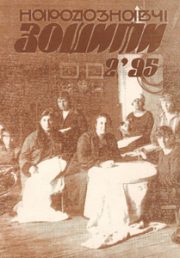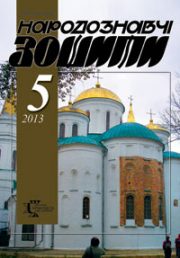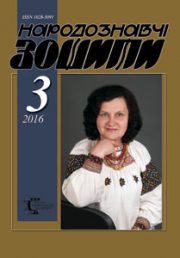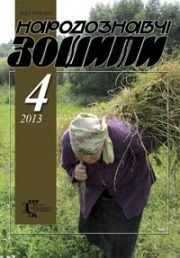The Ethnology Notebooks. 2022. № 3 (165), 647—656
UDK 2-234″1869/1904″=161.2(045)
DOI https://doi.org/10.15407/nz2022.03.647
STOTSKIY Yaroslav
- ORCID ID: https://orcid.org/0000-0003-0429-8740
- Professor, PhD hab. (History),
- Professor of the Psychology Department
- Ivan Puluj National Technical University of Ternopil
- 56, Ruska Street, 46001, Ternopil, Ukraine,
- Contacts: e-mail: jarstotskyj@ukr.net
Abstract. The aim of the research is to shed light on the multi-electronic course of the first Ukrainian-language translation of the New and Old Testaments by Panteleimon Kulish, Ivan Pulyuy and Ivan Nechuy-Levytsky, to reveal the problematic relations of different editions in one book and the organizational and editorial contribution of Ivan Pulyuy in this context.
The object of research is the first Ukrainian translation of the Old and New Testaments by P. Kulish, I. Pulyuy and I. Nechuy-Levytsky, and the subject is the role of Ivan Pulyuy in the process of translation, publication and distribution of this Bible.
The article investigates how Ivan Pul’uj together with Panteleimon Kulish firstly translated and published the New Testament and then, after the death of the latter, tells how Ivan Pul’uj brought Ivan-Nechyi Levytskyi to complete the translation of the Old Testament. Problematic negotiations regarding the publishing of the Bible translated by Ivan Pul’uj by London (British) Bible Society are revealed, as well as Ivan Puluj’s contribution to editing, prepressing and distribution of the Bible. The author also clarifies and explains the world release date of this first complete Ukrainian-language Bible comprised in one book, which has not been done before by any of the researches.
The novelty of the article: the author clarified and explained the date of publication of the first complete Ukrainian-language Bible in one book, which none of the researchers had done before.
The methodological basis is the following cognitive tasks: empirical, theoretical and logical, in particular from the logical method follows the comparative-historical method, which is closely related in this study with chronological, archival-epistolary, scientific-descriptive, interpretive, etc., which in total allowed to cover the specified topic in general.
Keywords: Ivan Pul’uj, Panteleimon Kulish, Ivan-Nechyi Levytskyi, the Bible, the New Testament, the Old Testament, translation, editing, publishing.
Received 16.06.2022
REFERENCES
- (1994). The Holy Scriptures of the Old and New Testaments. Complete translation based on original Hebrew, Aramaic and Greek texts. Ukrainian Bible Society. United Bible Societies [in Ukranian].
- Lanhlua, A. (2004). Scripture in European Culture: A Bible Dictionary. Kyiv: Dukh i litera [in Ukranian].
- (2014). Documents of the Second Vatican Council (1962—1965): Constitutions, decrees, declarations. Comments (translated from Latin). Ukrainian Catholic University.Lviv: Svichado [in Ukranian].
- (2011). Catechism of the Ukrainian Greek Catholic Church: Christ is our Easter.Lviv: Svichado [in Ukranian].
- Zhukaliuk, Mykola, & Stepovyk, Dmytro. (2003) A brief history of translations of the Bible into Ukrainian. Kyiv: Ukrainske Biblijne Tovarystvo [in Ukranian].
- Zbozhna, O.M. (2007). Ivan Pulyuy. Letters. Ternopil: Volia [in Ukranian].







